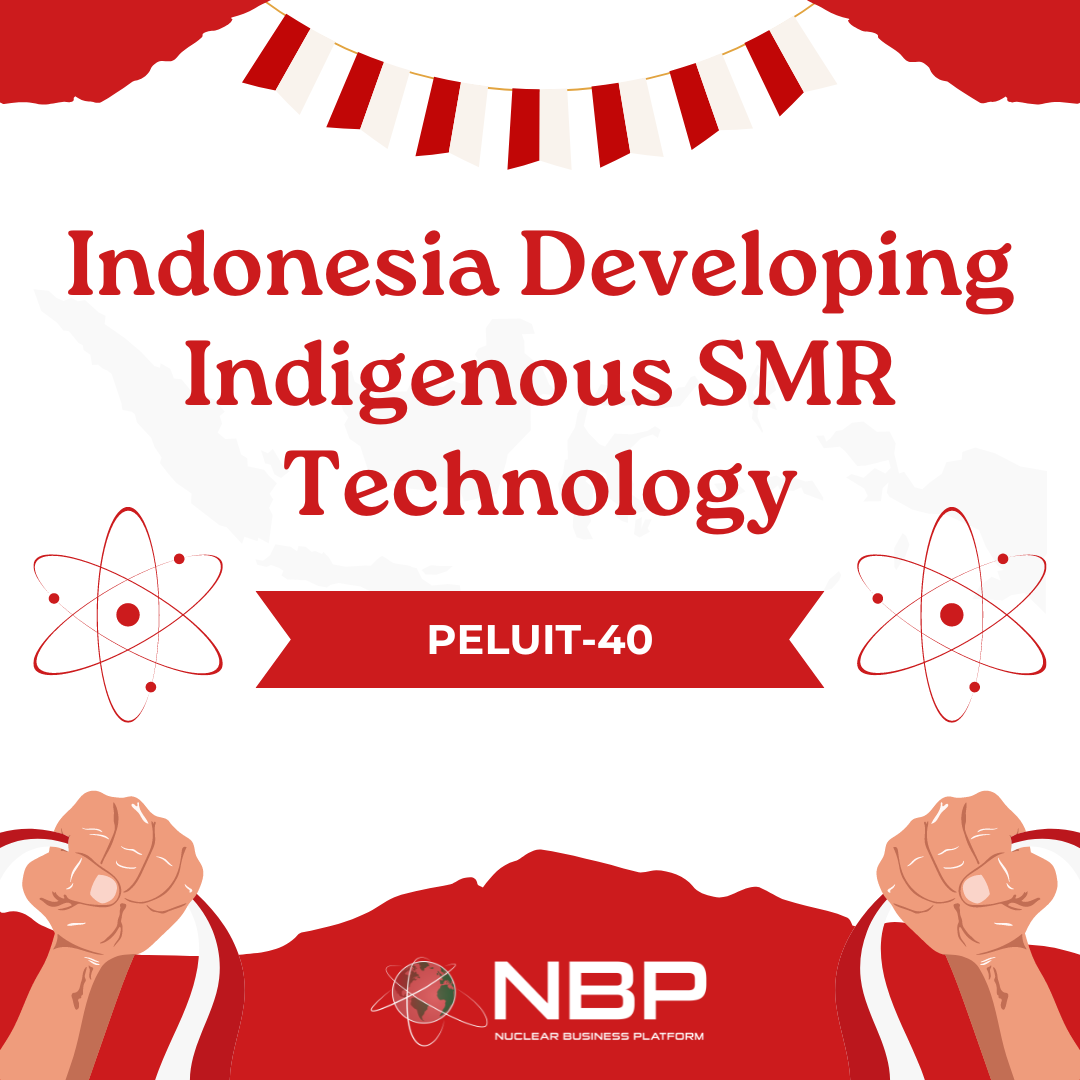Indonesia Developing Indigenous SMR Technology
PeLUIt-40 is an exciting development in Indonesia's quest for clean energy. The name "PeLUIt" is an acronym in Indonesian for "Pembangkit Listrik Ultra-High Temperature" which translates to "Ultra-High Temperature Power Plant." PeLUIt-40 is designed for heat utilizing and generating electricity, with a thermal power of 40 MW. The development of PeLUIt-40 reflects Indonesia's growing interest in utilizing nuclear energy as part of its clean energy mix.
Here's a breakdown of its background:
History:
Pre-2021: The groundwork for PeLUIt-40 was laid by the National Atomic Energy Agency (BATAN) before it merged into the Research Organization for Nuclear Energy (BRIN) in 2021.
2021-Present: BRIN took over the development of PeLUIt-40, building upon BATAN's prior research.
Current Status:
Design Stage: PeLUIt-40 is currently in the design phase.
Technology: It's a 40-megawatt thermal (MWt) small modular reactor (SMR) that utilizes High-Temperature Gas-cooled Reactor (HTGR) technology with a pebble-bed design.
Collaboration: BRIN is seeking international partnerships for co-development and implementation.
Funding Proposal: BRIN has proposed a budget of IDR 2 trillion (US$125.7 million) to the National Development Planning Agency (Bappenas) for a five-year development period, reflecting Indonesia's commitment to the project.
Future Plans:
Net Zero Goal: PeLUIt-40 is part of Indonesia's strategy to achieve net-zero emissions by 2060.
Dual Purpose: This SMR aims to not only generate clean electricity but also produce low-carbon hydrogen, a potential future fuel source.
Global Cooperation: BRIN is open to collaborating with established SMR vendors like Rosatom (Russia) or China to leverage their expertise
Indonesia has two strategies to realize small modular reactors (SMRs) as the first nuclear power plant technology in Indonesia, with the first being collaboration with international vendors to implement small modular reactor technology. The second strategy entails collaborating to encourage national technology development through strategic cooperation with international parties. One of these national technologies is PeLUIt-40.
PeLUIt-40 is a promising project in its early stages. While the design is being finalized and international partnerships are being explored, Indonesia's commitment to clean energy suggests continued progress in the coming years.



